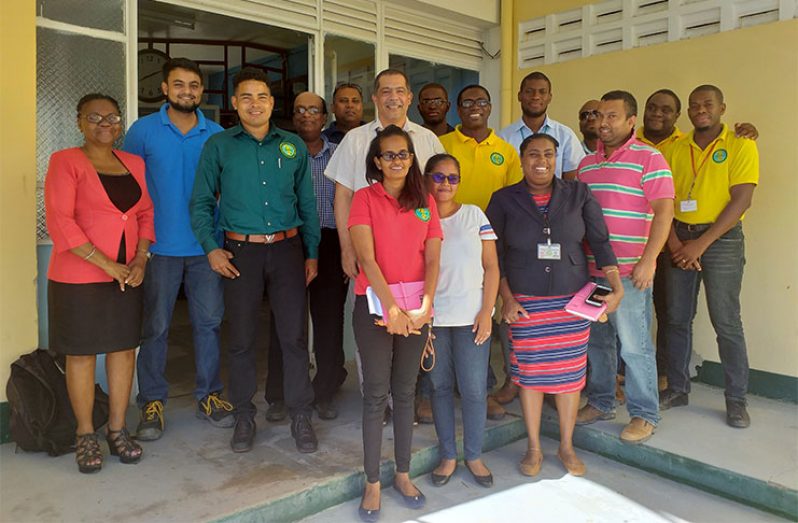THE National Agricultural Research and Extension Institute (NAREI) will include several innovative sustainable crop production projects aimed at further diversifying and greening the local agriculture sector in its 2020 budget.
According to a press release, the projects will be developed by a team comprising 12 research scientists, research assistants and extension officers, who will be attending a three-week training programme at the Tropical Agriculture Research and Higher Education Centre (CATIE), Costa Rica.
The team will be departing Guyana on Sunday, July 21, 2019. The training costs approximately US$85,000 and is being funded by the Government of Guyana and the Inter-American Development Bank.
Dr. Oudho Homenauth, CEO of NAREI and Wilmott Garnett, Country Representative of Inter-American Institute for Cooperation on Agriculture (IICA), who jointly crafted the training modules briefed participants about the training programme. The crops of primary focus are cassava, cocoa, citrus and coconuts.
According to Dr. Homenauth, the general theme for the training will be sustainable crop production but based on specific interests. The participants’ internship will focus on cassava and citrus production, agro-forestry systems, farm management, monitoring and evaluation of performance for different production activities and biometrics, as well as on topics related to the use of participatory methods for research and learning as the Farmers Field School approach, among others.
“Of importance is the tissue culture and biotechnology in genetic improvement and massive multiplication in the field. Whilst we are enhancing our biotechnology laboratory at NAREI, I advise you to take the opportunity to utilise the laboratory at CATIE,” Dr. Homenauth urged.
Dr. Homenauth encouraged the team to challenge their minds during the training programme. They were advised to observe and note innovative projects that could be implemented in Guyana to enhance the standard of NAREI and by extension the other crops sector.
“Each team member was carefully selected from research and extension services. You are required to develop a project based on sustainable crop production for next year. So, by September 30, 2019 there will be 12 solid projects,” he added.
Garnett, who is also a member of NAREI’s board of directors, believes that exposure to Costa Rica’s agri-business and CATIE’s planned theoretical and on-farm sessions will ignite the creative thinking NAREI requires for its agricultural projects.
“IICA’s staff will also be offering lectures on institutional development and examples of work being conducted with the Agriculture Development Bank in Costa Rica and to organise visits to specialised crop production systems. CATIE will organise visits to observe production for cassava and citrus as well as agro-forestry system,” he added.
All participants who fulfill the evaluation requirements will receive an Official Certificate issued by CATIE/IICA indicating satisfactory completion of the three-week training on Sustainable Crop Production. Each participant must attend 90 per cent of the programmed activities and submit an internship report to be qualified to receive the internship certificate.




.png)









